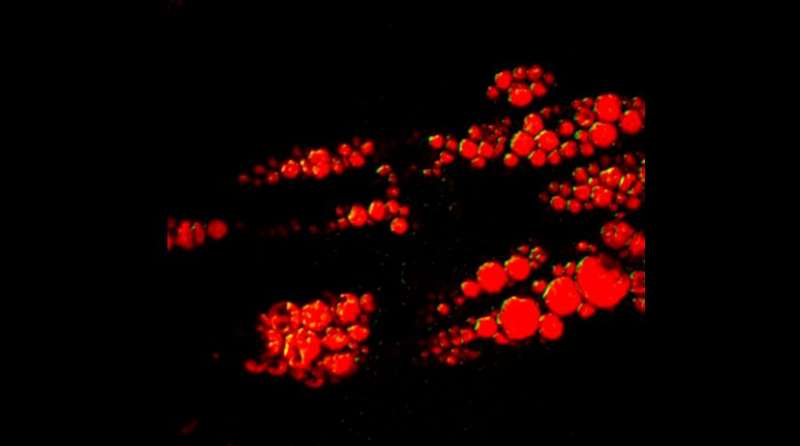Study paves way for steroid treatments with fewer side effects

An improved therapy to replace essential steroids in the body is a step closer thanks to new research.
The new treatment - expected to have fewer side effects than existing therapies - could help people with disorders of the adrenal gland whose bodies are unable to produce a class of steroids called corticosteroids.
Corticosteroids are involved in a wide range of physiological processes in the body, including regulating metabolism, blood pressure and helping the body to cope with physical stress.
The therapy could help people with conditions such as Addison's disease and congenital adrenal hyperplasia, who need steroid treatment to avoid the risk of potentially fatal illness during physical stress.
Treatment usually involves replacing one of the steroids they are unable to produce - called cortisol - with a medication. However, this approach also affects fat tissue and can lead to excessive weight gain, high blood pressure and type 2 diabetes.
Researchers at the University of Edinburgh's British Heart Foundation Centre for Cardiovascular Science studied another steroid called corticosterone, which is also naturally produced by the body. Until now, there has been little research into its activity.
In a mouse study, the team showed that the effects of corticosterone on fat cells were reduced compared with cortisol. They found the effects were reduced because fat cells have a pump that removes corticosterone - but not cortisol - from the fat cells.
The researchers tested the therapy in a small group of patients with Addison's disease. The team found that corticosterone was as effective as cortisol, but had reduced effects on fat cells compared with cortisol.
Professor Brian Walker, Head of the BHF Centre for Cardiovascular Science at the University of Edinburgh, said: "These findings suggest that corticosterone could provide a safer alternative to traditional cortisol replacement therapy for conditions such as Addison's disease and congenital adrenal hyperplasia."
The researchers say that, with further research, these findings may one-day lead to improved therapies for other conditions that respond to steroid treatment, including asthma and rheumatoid arthritis.
Dr Mark Nixon, of the BHF Centre for Cardiovascular Science at the University of Edinburgh, said: "The discovery of this selective corticosterone pump in fat cells could lead to a completely new approach in our search for safer steroid medications."
The study, published in the journal Science Translational Medicine, was funded by Wellcome, the British Heart Foundation, the Medical Research Council and the Engineering and Physical Sciences Research Council.
More information: ABCC1 confers tissue-specific sensitivity to cortisol versus corticosterone: A rationale for safer glucocorticoid replacement therapy, Science Translational Medicine, DOI: 10.1126/scitranslmed.aaf9074
















